#computer coding
Explore tagged Tumblr posts
Text
Hi! Little update on the Quizlet-like app, henceforth known and tagged as Innaflash. (One of my friend's ideas, and I'm a sucker for puns :) )
Tl;dr of below is i'd like opinions on the UI mockup so far, maybe some alternative color theme ideas.


No coding has happened yet, but I started making a UI mockup to get the brain juices going and also bc i just love messing around with color themes and graphic design, hee hee. I think I'm going with a webcore theme. Default will be purple, but there will be the option to change the theme (i already have the code for this so it's easy to implement). A couple images are above, I'd like to hear what you all think :)
#Innaflash#Innaflash Update#java#java coding#coding#computer coding#programming#computer programming#computer science#comp sci#quizlet#study tools#studying#game development#game dev#looking for feedback
75 notes
·
View notes
Text
A little more discussion of RPGs as tools for teaching coding concepts, per @raindoor's request. I hope you know what you're getting into...
This is a long one, so I'm going to throw it under a read-more -
Early intro to coding...
I teach the very earliest introduction to computer coding to 4th-6th grade students as part of my library/media curriculum. They all go on to take serious coding classes beginning in 7th grade. I am primarily meant to introduce them to core concepts like sequencing and debugging algorithms, and using variables, conditionals, events, text, and sprites to create interactive programs. I have been instructed by my administration to use Code.org to accomplish this.
Code.org is a great program -- and totally free, which is why I think it came to their attention in the first place -- that uses a programming language called Blockly to teach those core concepts. Students snap together little packets of code (colored blocks) to solve puzzles, create scenes, and build games.
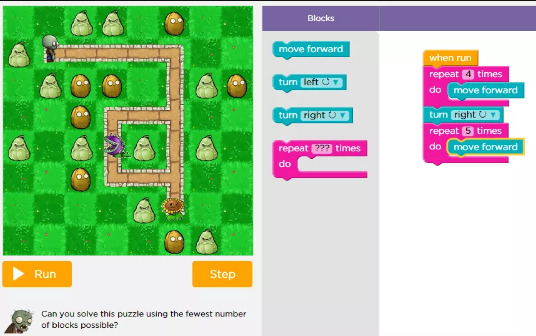
The kids are engaged by challenges that feature Minecraft, Plants vs. Zombies, Frozen, Ice Age, Star Wars, and more. And by giving them those premade blocks of code, there are FAR fewer chances for bugs to be introduced to their programs.
Code.org is great, BUT --
Many of my kids are used to playing computer games where they can just sort of keysmash their way through. Click on enough stuff, and things will happen. Code.org feels like a video game. The kids don't *have* to read the instructions. They don't *have* to know what they're doing in order to make it through a level. All they have to do is happen upon the right combination of blocks and press run, and the computer assumes they know what happened.
That's fine at first. The levels in the early units I use with 4th and 5th graders are mostly mazes of one kind or another. Simple challenges with simple solutions. Even the lesson above, which is supposed to teach them to use loops, will let them go on if they just slap together a list of FwdFwdFwdFwdRightFwdFwdFwdFwdFwd instead. Never mind that the point is the loops because we're on our way to using *nested* loops in the very next lesson...
Computer-less coding?
I have tried mixing in all sorts of non-computer-based reinforcement activities to help the kids nail down the core logic and reasoning process behind coding. Research shows that skills learned -- and even mastered -- on a computer do not necessarily translate to real life, so I wanted ways to get them off that computer and thinking for themselves from time to time. We've done debugging relays where each member of the team can correct one step in an algorithm or make a single new one. We've done coding labyrinths after reading Percy Jackson, where they have to lead their friends through a maze and avoid all the monsters. Worksheets where we rewrite code as a paragraph of actual sentences, so they see what exactly they're telling the computer to do. Jeopardy games where they read a set of instructions and figure out what it is asking them to do or find for their code. The most evil game of Follow the Leader on Earth, where we take turns adding tasks (like jumping jacks, ballet spins, etc) to a sequence, and then roll a die to put the items into loops, and then nested loops, so they can see the way instructions can quickly multiply. Anything to disengage that keysmash mentality.
Last year, my 6th graders were going to be the death of me. They had completed two years of coding with me, and we'd moved from maze puzzles and simple games, to a section of Code.org called Sprite Lab, where they were supposed to be able to use those early concepts to help them create scenes, short animations, simulations, and even basic mobile-like games. They couldn't do it. The code was suddenly non-linear, and it was like everything they knew flew right out of their heads. I realized they truly lacked the basic logic processes and computational thinking skills to work their way through even the earliest tasks in Sprite Lab.
Enter TTRPGs.
In trying to find a way to help the kids build these skills, I stumbled across a wonderful article by Bryant Owen on Medium. He talks about using RPGs to reinforce all kinds of skills, including the very logic and computational reasoning skills I was looking to build. Instead of the online RPG videogames he mentions, though, I thought back to the labyrinth game they'd played as 4th graders, or the debugging relay races across the library. The kids are far better at holding each other accountable than a computer is.
My brother is into D&D, and I'd played a handful of solo TTRPGs myself at that point, so I went digging on itch.io for some freebies to try out on my kids. We tried a couple of very simple solo journal-style RPGs to practice using conditionals (If, then statements) -- You are on your way to deliver a basket of goodies to Grandma's house. If you roll a 1, you meet a stranger in the woods. 2, you find an injured rabbit. 3, there's a thunderstorm. Etc. They created their own short stories and shared them with their friends. The journal style really worked for a couple of students, but it was a lot of writing for most of them. After playing through with my bland list of events and conditionals, they got to make their own versions. They had to make a list of 5 events (packing a bag, entering the woods, crossing a river, etc), and then create a dice roll list of complications for each event that would determine how the story went. Then they sat with their friends and just talked through the story. They were so gleefully mean to each other -- getting stuck up trees, eaten by alligators, chased by zombies, etc -- but they had fun!
We upped the complexity by playing a Magizoology game wherein they used a combination of cards and dice to create magical or monstrous creatures and describe the encounters in a field guide worksheet I made. They rolled and drew cards to create their characters, then did the same to determine the habitat their team was exploring, a size for the creature, a "most notable feature" (eyes, legs, teeth, etc) and an elemental affinity. The art was hilarious! And their encounters got more and more creative as they became more and more comfortable with the process.
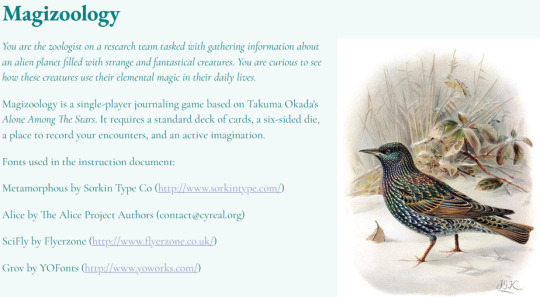
The Magizoology game went on to indoor recess with them as they learned it in the middle of a very bitter winter. I showed them how to write their own field guide entries on notebook pages, and I made them a simple sheet that got folded in quarters, so they wouldn't need cards or dice to play. One quarter got the numbers 1-6 for the dice. One quarter got the four suits of cards. And the last half of the page got all the cards, Ace-King. They could flick their erasers at it, drop pebbles or paperclips, spin the paper and stop it with a finger, etc. I had kids bringing me their especially gnarly or magical monsters for a week!
Honey Heist
Finally, we went full-storytelling RPG mode, with a GM and character creation and everything.
I found the game Honey Heist for them. It's a simple, one-page RPG in which you and your friends play as a team of highly successful criminals, who also happen to be bears. For elementary students, I did a teensy bit of censoring the language, but it was a big hit. It was by far the most complex game, if only because of all the elements you have to keep in mind as you play. First of all, the kids had to create their characters and the heist scenario using a series of dice rolls. They had to formulate an elaborate and daring plan to steal the honey. They did this in character. It was hilarious! During the heist, they not only had to cooperate and work to each other's bear and criminal strengths, they had to track bear vs criminal points (we used puzzle pieces we flipped back and forth - blank=bear, colored=criminal) and if a player maxxed out in either direction during the heist, they lost -- very dramatically!

The kids didn't know it, but in Honey Heist especially, their brains were working overtime. They were tracking multiple variables at any given moment as they made decisions based on the team's various bear/criminal stats. They had to act within the parameters set by their character design (like a sprite that has been given instructions). They had to think and plan several steps ahead, taking into consideration how the other characters would likely react. They had to remember to roll and react appropriately at predetermined points in the game (events and conditionals). They had to build their sequencing and computational reasoning skills on the fly as they broke down the problems their team faced into smaller, more manageable chunks. And they had fun! They got through 2-3 rounds of the game the first day, and they came back with all sorts of strategy to test out the second day. Kids reshuffled their groups based on who wanted an evil playthrough, or a Robin Hood round, or whatever.
Then, they created their own Honey Heist-style RPG. I broke down the format of the game into a series of worksheets, and they created their own premise, a seesawing stat to track like Honey Heist's bear/criminal, and character and scenario creation tables. The kids did amazing work! At the end of the unit, I made photocopies of their games, and we had a couple of play days. We had games about stray cats, Percy Jackson, Harry Potter, Diary of a Wimpy Kid (did I mention we were in a library? books were on the brain), dinosaurs, evil dinosaurs with super powers, kids at summer camp, the Zombie Apocalypse, paintball, Indiana Jones, escaping lab animals, Star Wars... It was honestly incredible. And the games all worked! The logic flowed, their friends had fun, and there were no easy-outs to get to that point. The games worked because they knew how to make them work.
The takeaway?
Did my 6th graders miraculously become coding superstars in Sprite Lab?
Of course not.
But they asked better questions. Instead of, "I don't get it," and, "Well, how am I supposed to know that?" I was getting, "Ok. So, it says... and I tried... but..."
TTRPGs take a while to get to your goal. They learned that fast doesn't always equal good.
TTRPGs require you to do your best for your fellow players. They learned they'd better pay attention and know what the heck is going on.
TTRPGs require lateral thinking. They learned that sometimes, their first plan isn't necessarily the best plan, and more importantly, it's okay to try it or talk it through.
TTRPGs have complex mechanics that determine important events. They learned that they don't have to know everything, but they do need to know where to look for the answers.
TTRPGs require you to think for yourself and create different versions of the same thing. They learned how to think their way through following examples to create their own unique versions of things, whether they be simple characters, or entire projects.
TTRPGs often have long instructions. They learned instructions aren't a punishment or a chore, but a treasure-trove of critical information meant to help them be successful.
After our RPG unit, there was sound logic involved in the kids' decision-making. They were able to pinpoint problems, even if they didn't yet know how to solve them. They were taking their time. Reading and rereading instructions for clues and hints. They had pride in what they were creating.
3 notes
·
View notes
Text
I want to take a crack at learning how to code 👩💻 but have no idea how to get started learning in programming or what languages are the most useful to learn. Help anyone?
5 notes
·
View notes
Text
You know, if I could do Algebra II and Geometry, my life would be so much easier. Then there's JavaScript. I hate it. I don't like the fact that I'll have to do college before vet school. Being able to spell epinephrine should make me qualified. XD
#school#math#algebra#geometry#computer coding#javascript#vet school#college#suffering#anguish#the spanish word for work is based off the latin word for torture and suffering#adios#I'm not dead#yet
5 notes
·
View notes
Text
Ok, so I don't know if this is anything, but recently I've had to pivot career paths due to budget cuts and disability. While surfing the job sites for remote options, I've noticed that there are a crazy amount of people looking for IT workers, but the thing is, I cannot afford college. That's ok, I've been hitting the books and apps, and I'll get my certifications that way if need be. I've been working for about 6 months this way.
But here's where I come to the masses. I'm currently typing up my own notes because the apps and books kinda sound like my FiL who is awesome when it comes to this kind of stuff, but has been doing all of this since the infancy of the internet. It's all a bit above my head. So I'm trying to translate it into my own terms, so it's like I'm talking to myself.
Now the notes are still in their begining stages, but I'm starting off with the Holy Trinity: HTML, CSS, and JavaScript. When I get finished with them, would you guys like me to share it to Tumblr so you still get access to like a layman's textbook? I can't give certification, and if one wanted to add onto it all they'd have to do is message, but I'd like to help make learning more relatable.
This is a heads up, my words are crude, my grammar is not scholarly, and I can't exactly promise you it's free of swear words. But it is more fun to read than anything I've read so far, I can promise that. Some quotes include:
"Don't get your knickers in a bunch, I'll talk more about character sets later"
" <title> Holy Crap, A Web Page</title> "
"You tap [the encoding tab] and select UTF-8, again, because it's the sexy man of HTML coding"
So feel free to DM me if anyone would be up for some free chaotic coding notes. I would love to learn of any other free resources to utilize while writing this first set of notes. I hope to include Python, Kotlin, Swift, and C++; and if I can find any surviving ancient texts, Pascal, just because it'd be really cool to be able to talk with my father in law about it because we don't have too much in common.
Until then, I will keep reading and writing, and I hope what I can contribute will make somebody's life a bit easier and their education a bit more entertaining.
2 notes
·
View notes
Text
2 notes
·
View notes
Text
In the 2000s you sat a kid in front of a Neopets pet page and they’d learn the fundamentals of html within the hour
#computer proficiency is dying because you don’t need to know coding to look awesome online anymore 😔#tays takes#neopets
16K notes
·
View notes
Video
youtube
#youtube#geometry dash#3d#2d#2d game#2d games#3d game#3d games#insane#hyperfixation#obstination#high effort#video games#mobile game#mobile gaming#mobile games#coding#animation#game design#level design#creativity#computer coding
1 note
·
View note
Text
#apollo papyrus#writing#books#podcast#spotify#interview#books and writing#mic lowther#author#computer coding#hiking#appalachian trail#writer
0 notes
Text
Wait, ok, so the last one really caught in my brain and now I have to expand.
Ages ago I learned about how, in the middle ages, religion and everyday life were intertwined in these ways that could seem weird and superstitious, but which were actually super practical. The detail I remember most was how recipes using the Lord's Prayer in order to gauge oven temperature - something along the lines of "the oven is at the right temperature when you put your arm in and start reciting the Lord's Prayer and have to remove it at such-and-such line"
There were loads of more examples of using standard prayers as a means of keeping time etc. in various food and medical recipes, and the thing was, in all likelihood people didn't differentiate between "the recipe/medicine works because it was prepared properly" and "it works because it was prepared with God's blessing". That was just how the world worked - if you did things in the traditional pious way, they generally came out right.
But now I'm imagining like...steampunk computer coding. Given how mainstream Christianity was in Europe, it's incredibly plausible that people coming up with programming languages would incorporate elements of liturgy - be it from genuine piety/seeking devine assistance, to passive superstition ("I don't think God's *likely* to prevent computer bugs, but it can't hurt"), to just taking advantage of the ease of communicating in fixed and relatively universal terms.
All of which is to say: exorcising a rogue AI thanks to that being hard-coded as a self-destruct mechanism is a) incredibly plausible and b) introduces some truly delicious world building possibilities
(Obviously all of this is extremely European & Christianity-centric, an unfortunate inevitably given my upbringing and education. Others with differing perspectives/experiences are encouraged share how those interact with these ideas!)
Huge huge fan of anachronistic interactions in my writing ideas. Using modern firearms to fight mythical monsters, using swords and shields to fight killer robots, powering computers with coal or gasoline, using a nuclear reactor to power a clockwork automata, space suits that look like diving apparatus from the 1800s, modern skyscrapers in the middle of stone and straw villages, using MRI machines to determine where you need a hole drilled in your head to let the ghosts out, killer AI being banishable by holy rituals that have unknowingly incorporated override codes, do you understand yet???
#steampunk#world building#writing ideas#computer coding#disclaimer: I am neither a historian nor a computer programmer#i am just an enthusiastic amature playing with ideas for fun#godddd now i really want to talk to people who actually do understand this shit so we can flesh out the idea more#if thats you please dm me#i love learning through weird hypotheticals#rambles
2K notes
·
View notes
Text
TURNED IN MY LAST PROJECT SEMETER'S OFFICIALLY OVER BITCHES
#I had it down to the WIRE#my heart was legit beating out of my chest alshdfvksadvhf#computer coding
0 notes
Text
Thinking about making a free quizlet alternative in java, I'd like suggestions on modes to add. Maybe I'll put it on github or something if I end up with a usable product so others can use it? (More details under cut)
Using quizlet for the first time in awhile and DAMN it sucks. Not only was the whole UI changed and made worse/ more corporate, EVERYTHING requires a membership now??? The asteroid mode (my favorite </3) was either removed or made pay only. Literally scrapping what i can thats free to study. Ik i can get a free trial but its about the principal.
ANYWAY. I've been building a java library that builds off FX (graphics library) that has made making programs w/ graphics quicker and easier. Plus, I already made a typing game similar to the asteroid mode in high school. Basically everything would be super easy to code I think, once I have the time.
Any suggestions on modes/ features I should make?
#java#java coding#coding#computer coding#programming#computer programming#computer science#comp sci#quizlet#studying#game development#game dev#looking for feedback
52 notes
·
View notes
Text



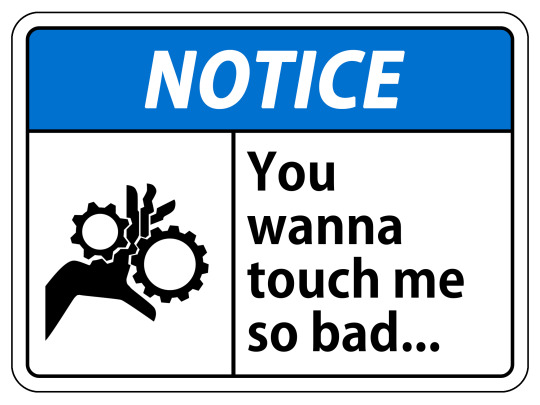
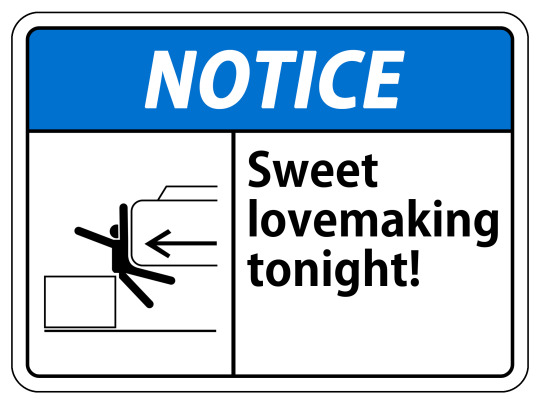
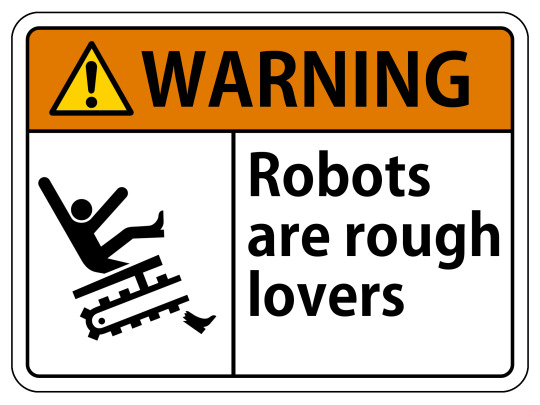


Funny goofy signs I made with this site.
#objectum#os/or#suggestive#giggling and twirling my hair#on the wave of code#techcore#posic#computer kisser#computer objectum#objectophilia#objectum sexuality
6K notes
·
View notes
Text
The 1:1 scale map is about to arrive... The original is in use & can't be folded up to be borrowed atm...

til the maximum size of a pdf is 381 x 381 km
9K notes
·
View notes
Text
programming nerds (hobbyist or professional or otherwise) PLEASE infodump to me about your favorite coding language. in the tags or the reblogs or the comments idc
0 notes
